Museum visitors to have AI chats with dodo
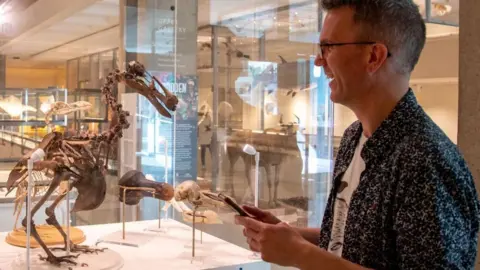 J. Garget
J. GargetVisitors to a natural history museum will be able to have two-way chats with animals on display using generative artificial intelligence (AI).
The University of Cambridge's Museum of Zoology has chosen 13 specimens for the conversations, including the extinct flightless bird the dodo, narwhal and blue fin whale skeletons, a red panda and a preserved cockroach.
Assistant director Jack Ashby said its purpose was to get people engaged with the natural world, as well as providing insights into what visitors wanted to know about the displays.
Visitors will scan a QR code near the exhibit with their phones to start the conversation with each specimen. The month-long experiment starts on Tuesday.
Mr Ashby said: "We're curious to see whether this will work and whether chatting to the animals will change people's attitudes towards them - will the cockroach be better liked, for example, as a result of having its voice heard?"
He described it as "an amazing opportunity for people to test out an emerging technology" in a museum setting, with the exhibits able to communicate in more than 20 languages.
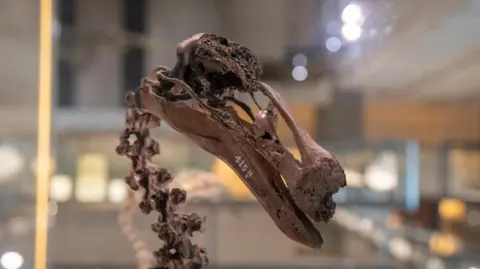 J. Garget
J. Garget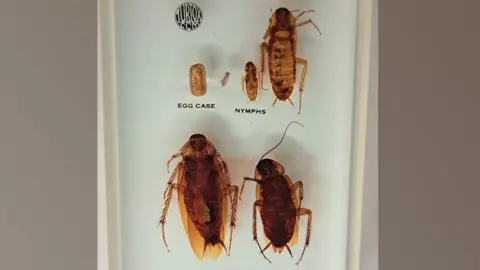 University of Cambridge
University of CambridgeThe initiative is a collaboration with company Nature Perspectives, which uses AI to help institutions like the museum engage the public through conversational experiences.
Co-founder Gal Zanir said visitors would be encouraged to ask any questions that interested them and "the replies are crafted from the animal's simulated point of view", drawing on scientific knowledge and the species' unique traits.
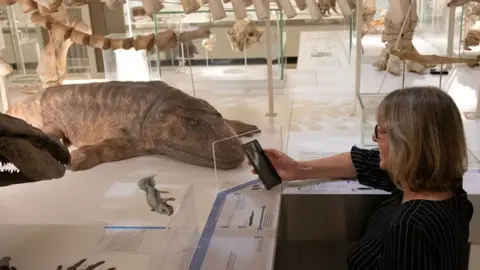 J. Garget
J. GargetNature Perspectives, which was created by Cambridge University Masters in Conservation Leadership graduates, said people seemed to feel more connected with machines when they talked to them.
This inspired it to apply the same principle to nature - giving it a voice to "strengthen our connection with the natural world and reverse apathy towards biodiversity loss", it said.
Mr Zanir said: "To the best of our knowledge, no other museum offers this type of immersive, first-person interaction with natural history entities/specimens", enabling "direct, first-person dialogues with the animals themselves".
"We aim to apply this transformative approach widely, from public engagement and education to scientific research, to representing nature in legal processes, policy-making and beyond," he added.
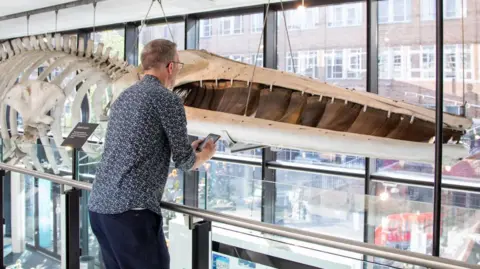 J. Garget
J. GargetBut how will the company ensure the AI responds correctly and without making up replies?
Mr Zanir said the AI was "fine-tuned" on a curated set of scientific data selected by its team of ecology experts.
While the AI will draw on broader available knowledge, it will prioritise the specific knowledge that had been "carefully curated".
Other specimens participating in the project are brain coral, the red admiral butterfly, huia taxidermy (a recently extinct bird from New Zealand), a freeze-dried platypus, a giant sloth fossil skeleton, a giant deer skull and antlers, a mallard taxidermy and an Ichthyostega model.
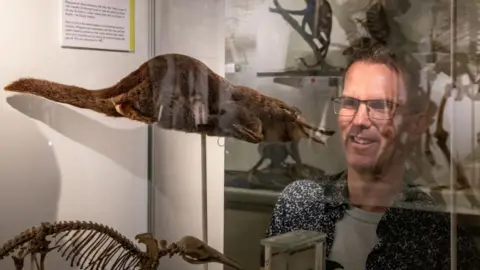 J. Garget
J. GargetFollow Cambridgeshire news on BBC Sounds, Facebook, Instagram and X.
